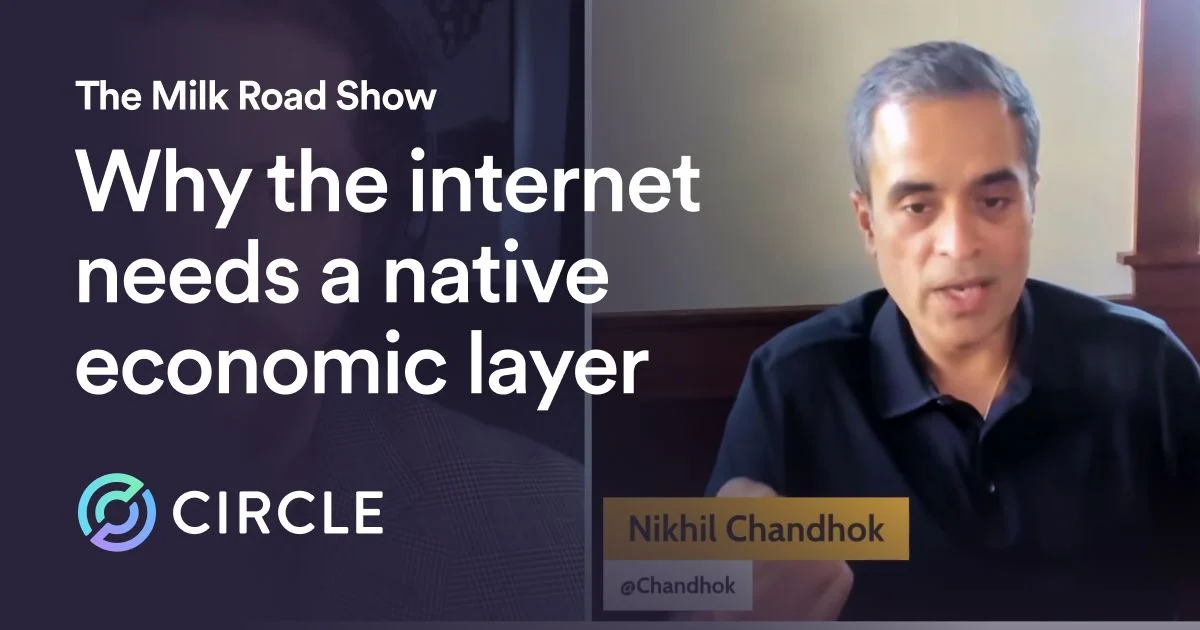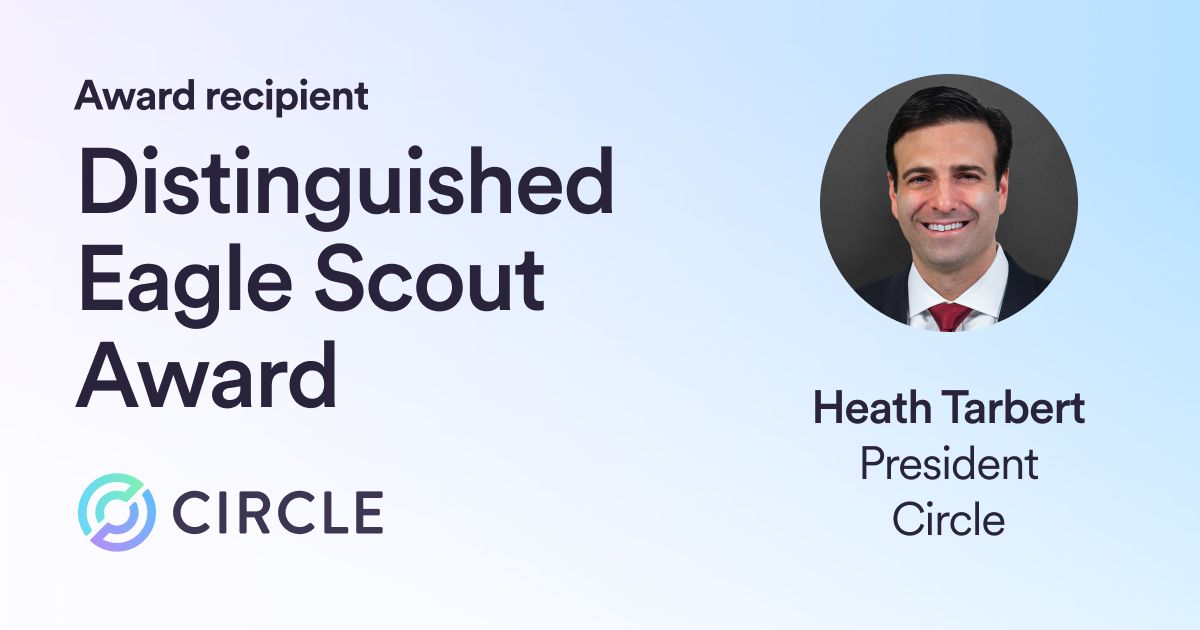Circle's Chief Strategy Officer and Head of Global Policy, Dante Disparte, provides comments on the recent Executive Order from the White House.

The crypto industry is not too big to fail from a systemic risk point of view, but it has become too big to ignore. Following a round of hearings in the House Financial Services Committee and the Senate Committee on Banking, Housing and Urban Affairs (among other policy efforts in the U.S. and around the world), the emerging digital assets industry has crossed over into becoming an important part of global financial markets infrastructure and a new layer of the internet that can power an internet of value where end users are not merely products, but participants. This third generation of the web (Web3) enables users to read, write and own digital assets and content, while enjoying a right to privacy and equitable economic participation. Our financial needs are always-on, and our money and corresponding financial services should follow suit in a safe, sound and compliant way. The Biden Administration and the White House have acknowledged that the cryptocurrency sector warrants a whole-of-government approach to harness opportunities while controlling and managing inherent risks in responsible innovation. This acknowledgement is encouraging.
Indeed, global competition for the movement of economic value on the internet has only accelerated with the onset of the COVID-19 pandemic. On the one hand, the onset of the pandemic ground many traditional sectors of the global economy to a halt, while on the other it revealed a deep-seated technological dependency for any semblance of household, business, political and economic continuity. This transition can be described as nothing short of a Great Correction and the fundamental democratic attributes of public blockchain infrastructure can help enshrine core U.S. values into a more inclusive and participatory internet. At scale, the sum of the economic activity supported by public blockchains, which are moving from a proverbial “dial-up” phase to a broadband phase – can support the emergence of public-private digital commons completing much unfinished work in the global economy. The U.S. is and should continue leading in this domain and the encouragement of ongoing government review and industry engagement is both timely and needed.
As the Biden Administration's Executive Order lays out a deeper round of Federal agency review and study, hopefully these crypto opportunities are understood by the White House and government stakeholders, sparking an era of U.S. leadership, economic competitiveness and security. Indeed, we join with more than 40 national security leaders from the nonpartisan American Security Project (ASP) in calling for precisely the type of national focus and whole-of-government approach espoused by President Biden’s Executive Order. This call to action from ASP highlights blockchain and digital currency innovations, among other exponential technologies, as cornerstones for long range U.S. security and economic competitiveness. The rapid onset of crises (domestic and foreign) and the tragic return of war in Europe with Russia’s invasion of Ukraine have shown the art of the possible – albeit in small ways compared to the great humanitarian needs – of how crypto and Web3 can power real-time, corruption-resistant and globally coordinated humanitarian interventions. Overall, the crypto industry has raised more than $60 million dollars to date for Ukrainian relief efforts in an operating model that should become a blueprint for global humanitarian response.
The burgeoning digital assets and crypto industry has been one of the bright spots in otherwise dark times, even where this fast growing sector is not without attendant risks and occasional controversy. At the core of more open financial, economic and coordinating systems on the internet is the presumption that privacy, security and compliance are not trade offs or points of tension, but rather priorities that can evolve in lock step. A maturing digital assets industry, which has spun off a veritable digital fire brigade and can respond to complex and emerging risks from ransomware attacks to sanctions evasion, among others, is increasingly giving bad actors (native in all financial markets) fewer places to hide in publicly and permanently ledgered money flows. Circle, together with major companies and developers in the industry, is bringing to bear the power of open-source technology to address key gaps in the digital assets market.
Chief among these gaps is the question of how trusted forms of digital identity and verification follow along with the emergence of digital assets creating a veritable blue checkmark moment for the industry. Our newly-announced decentralized identity initiative, Verite, along with our travel rule compliance initiative, TRUST, and the recent formation of the Crypto Market Integrity Council, mark examples of how responsible actors in the industry are coming together on complex risk, compliance and national security priorities. Indeed, nothing argues more for privacy-preserving digital identity to be a critical companion innovation of Web3 than recent population-scale data breaches.
On the historically elusive goal of financial inclusion and enhanced consumer choice and protection, public blockchains and digital currency present a generational opportunity to extend the perimeter of the formal economy. Circle is doing its part to use these new technologies to reach the people and communities who are all too often left behind by the traditional financial system, while supporting a broad array of digital financial literacy initiatives. Critically on the vital global issues of arresting the harmful effects of climate change, we are encouraged by and driving towards a net-zero transition and shift in computational intensity in the blockchain and crypto ecosystem.
The U.S. dollar should be the currency of the internet, as much as the U.S. should remain the home of principled innovation and competition. For this, today’s Executive Order is a welcome sign of the White House's continued focus on cryptocurrency. Circle will remain fully engaged.





